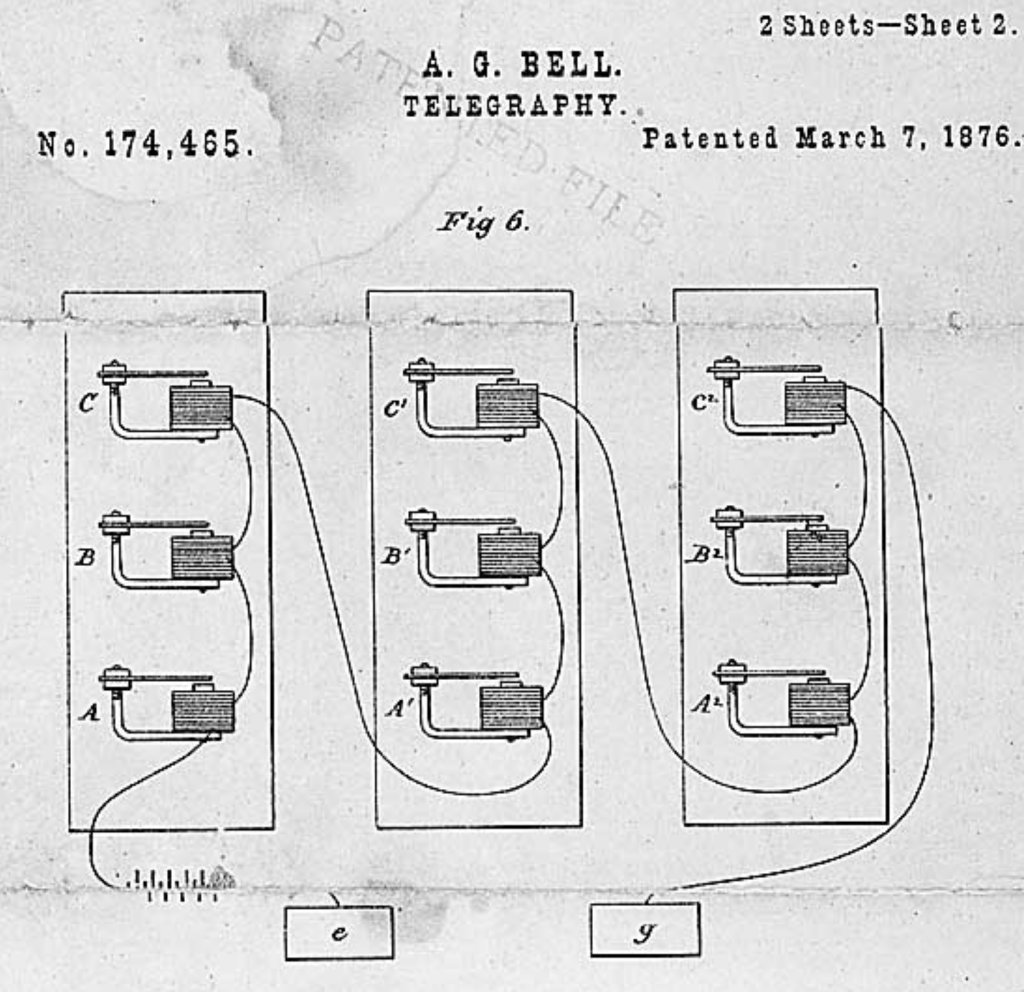One important but underdiscussed case on last Term’s Supreme Court docket was FCC v. Consumers’ Research, in which the Court reversed a ruling by the United States Court of Appeals for the Fifth Circuit that had invalidated several aspects of a federal regulatory scheme by which the Federal Communications Commissions (FCC) discharged its statutory duties to ensure universal telecommunications service. As the brief the United States filed with the Court explained, Congress by statute has required the FCC “to operate universal service subsidy programs using mandatory contributions from telecommunications carriers. [And] [t]he [FCC] has appointed a private company as the programs’ Administrator, authorizing that company to perform administrative tasks such as sending out bills, collecting contributions, and disbursing funds to beneficiaries.” The Fifth Circuit held that Congress violated the so-called nondelegation doctrine of Article I of the Constitution by authorizing the FCC to determine the amount that providers must contribute, and that the FCC also violated the nondelegation doctrine by using the private-company Administrator’s financial projections in computing universal service rates. The Supreme Court reversed both of those holdings, upholding Congress’s scheme.
That the Fifth Circuit was repudiated is not in and of itself surprising—such repudiation of the nation’s most aggressive federal court of appeals happens with regular frequency these days. But the result at the High Court was somewhat more divided than might have been expected, with Justices Clarence Thomas, Samuel Alito, and Neil Gorsuch all expressing a willingness to deploy the non-delegation idea to strike down a federal statute for the first time in about a century.
Even among the six-person majority, Justice Brett Kavanaugh (while joining the Opinion of the Court) felt the need to write a concurrence to set out his own views, some of which may end up becoming the decisional fulcrum in future cases. In the space below, I identify and evaluate several key features of Justice Kavanaugh’s separate writing. Some of what Justice Kavanaugh suggests seems clearly right, while other of his observations may not hold up, or at least may require much more careful analysis before they can be embraced.
First, Justice Kavanaugh rightly observed that discretion in implementation by executive actors is both inevitable, and, in most instances, constitutionally unexceptionable. As he pointed out, “[f]rom the start in 1789, Congress has delegated to the President the power to exercise discretion and policymaking authority when implementing legislation.” Such policymaking latitude is, as a practical matter, unavoidable: “The history of congressional delegations and the Court’s understanding of Article II’s text correspond to what the Court has described as the practicalities of legislative and executive action. Congress delegates at least in part because it must adapt legislation to ‘complex conditions involving a host of details with which the national legislature cannot deal directly.’” For these practical and inescapable considerations, “the Court has reasoned that the President ordinarily exercises ‘executive Power’ under Article II [as distinguished from impermissibly exercising ‘legislative’ power] when implementing legislation—even if he employs discretion or policymaking authority when doing so and even if the Executive Branch issues legally binding regulations.”
A second spot-on observation in Justice Kavanaugh’s concurrence is that delegations to agencies controlled by the President should be considered the same as delegations directly to the President himself. To see this, we must begin by examining the first words of Article I of the Constitution, which is the textual font of the so-called non-delegation idea. Article I opens with the admonition that “[all] legislative [p]owers herein granted shall be vested in . . . Congress . . ., which shall consist of a Senate and a House of Representatives.” Because “all legislative powers” created by the Constitution are “vested” in “Congress,” the non-delegation argument runs, no such legislative power can be given to anyone or anything else. But, even as a matter of text, things are much more complicated. For starters, even though this clause locates all legislative powers in Congress (defined as a Senate and a House), Article I goes on to involve the President in the creation of legislation; the Senate and the House may make law only with the assent of (or after a supermajoritarian override of) the President. So federal lawmaking is not given exclusively to a simple majority of the Senate and the House; it is given to the Senate, the House and the President, or to a supermajority of the Senate and the House. Moreover, just as “Congress” in Article I’s first sentence needs to be qualified, so too “vested” needs to be defined. Why, in particular, does “vested” mean that power delegated to “Congress” cannot be redelegated to someone else? After all, Article II provides that “[t]he executive Power shall be vested in a President [emphasis added]”, but the President routinely transfers substantial executive authority to his subordinates in the Executive Branch. In this regard, lower-level executive officials are engaged in what is undeniably the exercise of executive—that is, not legislative or judicial—power. See Myers v. United States, 272 U.S. 52, 117 (1926) (“[T]he President alone and unaided could not execute the laws. He must execute them by the assistance of subordinates.”) And yet no one raises constitutional objections to this ordinary practice on the ground that is ‘“[di]vests” the President of executive powers that the Constitution says shall be vested in him in particular.
But, as I have elaborated in both academic writings and in amicus briefing, a primary reason the Constitution so readily permits broad delegations of power within the Executive Branch is that the President is generally (under unitary-executive notions) free to oversee, override, and reclaim any authority he has delegated. This is why Justice Kavanaugh is correct in observing that, “although statutes sometimes delegate to executive officers or agencies rather than to the President. . .[t]hose delegations to executive officers and agencies . . . are not analytically distinct for present purposes from delegations to the President because the President controls, supervises, and directs those executive officers and agencies.”
As this key feature of intra-branch delegation helps explain by delegation within the executive branch is generally permissible and doesn’t run afoul of the Constitution’s “vesting” of executive powers in the President, this feature also illuminates (and here I am going beyond anything Justice Kavanaugh asserted) what is deeply problematic about broad inter-branch delegations of power from Congress to the President: Once delegated, that legislative power cannot readily be reclaimed by Congress. In other words, under the Constitution, delegations of power are not problematic per se, but instead are constitutionally offensive when delegated power is hard to reclaim after it has been delegated.
This understanding of the nondelegation principle finds support in the originalist scholarship done at the beginning of the last century that traced the origins of the Latin nondelegation maxim, “delegata potestas non potest delegari,” generally translated as “delegated power may not be redelegated.” Their groundbreaking historical research established that the earliest forms of this common-law maxim—which has informed constitutional nondelegation concerns—were framed in anti-alienation terms. Namely, power cannot be so delegated, that the primary (or regulating) power does not remain with the King himself. That is, the original concern was that the “King’s power not [be] diminished by its delegation to others.” This historically accurate reformulation focuses attention on a key aspect of the delegation problem: that delegation is more problematic when it is harder to reclaim.
Even scholars who have suggested the Framers were generally untroubled by the delegation of legislative power have acknowledged the concerns created by legislatures’ permanent alienation of legislative power without right of reversion or control. Alienation—permanent dispossession—is another way of describing something that has been given in such a way that it can’t be controlled or retrieved. Then-Solicitor General Robert Jackson invoked that very distinction in a brief the United States filed in Currin v. Wallace, 306 U.S. 1 (1939), writing: “It would appear elementary that no department can divest itself of the power thus vested in it. In other words, there can be no alienation of power. [But] [d]elegation . . . that is at all times subject to recall and supervision by Congress . . . is in no sense a divesting or alienation of its power” (emphasis added).
The upshot of all this is that delegation of broad policymaking power to the President poses particularly vexing problems under Article I. When a President (as opposed to a State, for example) exercises delegated power in a way that diverges from the understandings and expectations of the empowering Congress, and thus essentially embarks on new unilateral lawmaking, the House and Senate cannot easily retrieve the delegated power. That is because when Congress tries to reclaim broad delegations to the President (or agencies over which he exercises complete dominion), the President enjoying that delegated power can veto the proposed repeal law, requiring a supermajority of both houses to overcome.
A third important and correct observation Justice Kavanaugh makes is that the “intelligible principle” standard that the Court has used in the past (and committed to again in the FCC case)—that is, the doctrinal rule that a statute conferring power to the President does not run afoul of Article I’s non-delegation principle so long as the statute lays down “intelligible principles” by which the executive branch is supposed to exercise its discretion—may be the best the Court can do in directly enforcing the non-delegation norm. As Justice Kavanaugh rightly noted:
[t]he question of where to draw [a substantive non-delegation] line can be difficult: At what point does a broad statutory delegation transform from (i) a permissible grant of discretion or policymaking authority for the President to exercise when implementing legislation into (ii) an impermissible delegation of legislative power? Justice Scalia phrased the issue this way: ‘Once it is conceded, as it must be, that no statute can be entirely precise, and that some judgments, even some judgments involving policy considerations, must be left to the officers executing the law . . . , the debate over unconstitutional delegation becomes a debate not over a point of principle but over a question of degree.’
Because the drawing of a substantive non-delegation line is a formidable task for an unelected federal judiciary, the “intelligible principle” test, which is obviously unsatisfying at some level, endures: As Justice Kavanaugh explained: “The intelligible principle test has had staying power—perhaps because of the difficulty of agreeing on a workable and constitutionally principled alternative, or because it has been thought that a stricter test could diminish the President’s longstanding Article II authority to implement legislation.”
But, and this is a fourth correct point Justice Kavanaugh makes that I want to amplify, to say that courts can’t easily draw the substantive line between permissible creation of executive policymaking discretion and impermissible conferral of lawmaking power to the president unto himself is not to say that there is nothing federal courts can do to vindicate non-delegation values. As Justice Kavanaugh rightly observed and I have argued in detail in amicus briefing, requiring Congress to speak explicitly before courts recognize broad and impactful presidential powers under a statute—something the so-called “major questions doctrine” does—is a (second-best) way of enforcing non-delegation principles indirectly even when such principles cannot be enforced directly. Here is how I put the point in the D.C. Circuit tariff case briefing:
Drawing substantive lines between permissible conferral of executive implementation power and impermissible delegation of legislative power is obviously hard, if not impossible, for courts to do without appearing to be ad hoc and result-oriented, especially because permissible executive implementation power will almost always need to involve some discretion. . . . [But because] in cases involving statutory delegations of power, the President is unlikely to cooperate in overriding a judicial decision that erroneously grants him more power than Congress desires (and more power than nondelegation principles would permit), [t]he costs of an erroneous decision approving the President’s assumption and exercise of legislative power are thus greater than the costs of an erroneous decision finding that the President has exceeded his delegated authority.
So much for the points on which I necessarily agree with Justice Kavanaugh. Here are three on which I think he is wrong or on which he needs to say much more to convince me. First, a quibble: Justice Kavanaugh lists, alongside the major-questions doctrine, the rejection of so-called “Chevron deference” afforded to executive agencies in the 2025 Loper-Bright ruling as another example of indirect enforcement of non-delegation principles. But the majority opinion in Loper-Bright was based entirely on a statutory interpretation of what the Administrative Procedure Act—and not the Constitution—requires. Technically, then, Loper-Bright leaves Congress free to reinstate Chevron deference (or something like it) on either a retail or wholesale statutory basis.
Second, Justice Kavanaugh thinks that delegations of broad policymaking powers to so-called independent agencies raise constitutional delegation problems, not under Article I but under Article II. As Justice Kavanaugh puts the point: “Congressional delegations to independent agencies, as distinct from delegations to the President and executive agencies, raise substantial Article II issues. . . . If the FCC were an independent agency . . . then a serious Article II delegation problem would arise . . . .” To be sure, “independent” agencies fit uncomfortably within broad notions of a unitary federal executive branch, insofar as the President cannot control or countermand the activities of independent agencies. But exactly how broadly the unitary executive theory ought to and does extend is a complicated question, and one that goes beyond conventional Article I non-delegation principles. To take but one example, consider federal statutory delegations of power to states. There is no insuperable problem here under Article I; after the advent of direct election of U.S. Senators, states no longer have any power (akin to the President’s veto) to block reclamations of such power by subsequent actions by Congress and the President, and thus (under the reasoning I outlined above and in academic scholarship), non-delegation concerns would seem to be allayed. But is there a separate problem under Article II with states exercising broad power conferred by federal statutes? Put to one side involuntary conscription of state officers to implement federal law (and the anti-commandeering principle for state executive officials the Court announced in Printz v. United States, involving the gun-control background checks under the federal Brady Act) what about voluntary state acceptance of federal implementation responsibilities? This issue arose in Printz itself, and there Justice Scalia’s majority opinion (like Justice Kavanaugh’s concurrence in FCC) flagged a unitary executive problem:
The Brady Act [by impressing state enforcement officials into implementing federal law] effectively transfers [enforcement] responsibility to thousands of [local law enforcement officials] in the 50 States, who are left to implement the program without meaningful Presidential control (if indeed meaningful Presidential control is possible without the power to appoint and remove). The insistence of the Framers upon unity in the Federal Executive—to ensure both vigor and accountability—is well known.
But, what about voluntary state cooperation with federal enforcement? Here is all Justice Scalia had to say: “The dissent is correct . . . that control by the unitary Federal Executive is also sacrificed when States voluntarily administer federal programs, but the condition of voluntary state participation significantly reduces the ability of Congress to use this device as a means of reducing the power of the Presidency.”
This comeback by Justice Scalia seems self-evidently inadequate: that states will often decline to voluntarily assist (such that Congress will be able to cut the President out of enforcing federal law less frequently) says nothing about whether Article II is being flouted in those cases where states do agree to enforce. My big point here is that the contours of the unitary executive theory need to be explored and explained with much more nuance than Justice Kavanaugh does here. If voluntary state implementation of federal law does not violate Article II, then why, precisely, does executive power by all federal independent agencies run afoul of Article II non-delegation notions? Perhaps states are different from independent federal entities. That is, perhaps the vesting of “the” executive power in a President in Article II refers specifically to executive power exercised by federal officials but not others; after all, private rights of action created by federal statute (while disfavored by many conservative Justices) have not, when Congress has explicitly created them, been thought of as violating Article II. Or maybe voluntary state assistance should be characterized as state enforcement of state (rather than federal) laws that in effect incorporate federal ingredients. I don’t have the space here to explore these issues and possibilities in depth. Instead I suggest only that, like Justice Scalia’s flimsy footnote, Justice Kavanaugh needs to say and do much more before his argument here about Article II non-delegation principles can be embraced.
So too with Justice Kavanaugh’s observation that non-delegation concerns ought to play out differently when the President is acting in national security or foreign affairs arenas. To be sure, as the Court recognized in the Youngstown steel-seizure case, the President has independent constitutional authority as Commander in Chief and head of a state in the community of nations. The presence of independent presidential powers may make congressional conferrals of power less important. But, as in Youngstown, we need to know how far the concepts of foreign affairs and national security extend. After all, President Truman argued there that he needed to seize domestic steel mills in order to prosecute a war and defend Americans abroad and at home, and the Court rejected that broad “theatre of war” notion. None of us knows how broadly Justice Kavanaugh thinks these concepts extend, but we may get a clear sense when (as seems likely in the next year or so) the Court takes up whether the President has the broad tariff authority he asserts under the International Economic Emergency Powers Act (IEEPA). Ordinarily non-delegation principles and the related major-questions doctrine would cut strongly against President Trump, but we’ll see if Justice Kavanaugh thinks that tariffs on goods imported to the U.S. (because they come from outside the U.S) implicate foreign relations or national security sufficiently to require more ambitious policymaking by the President absent clear congressional authorization.


























